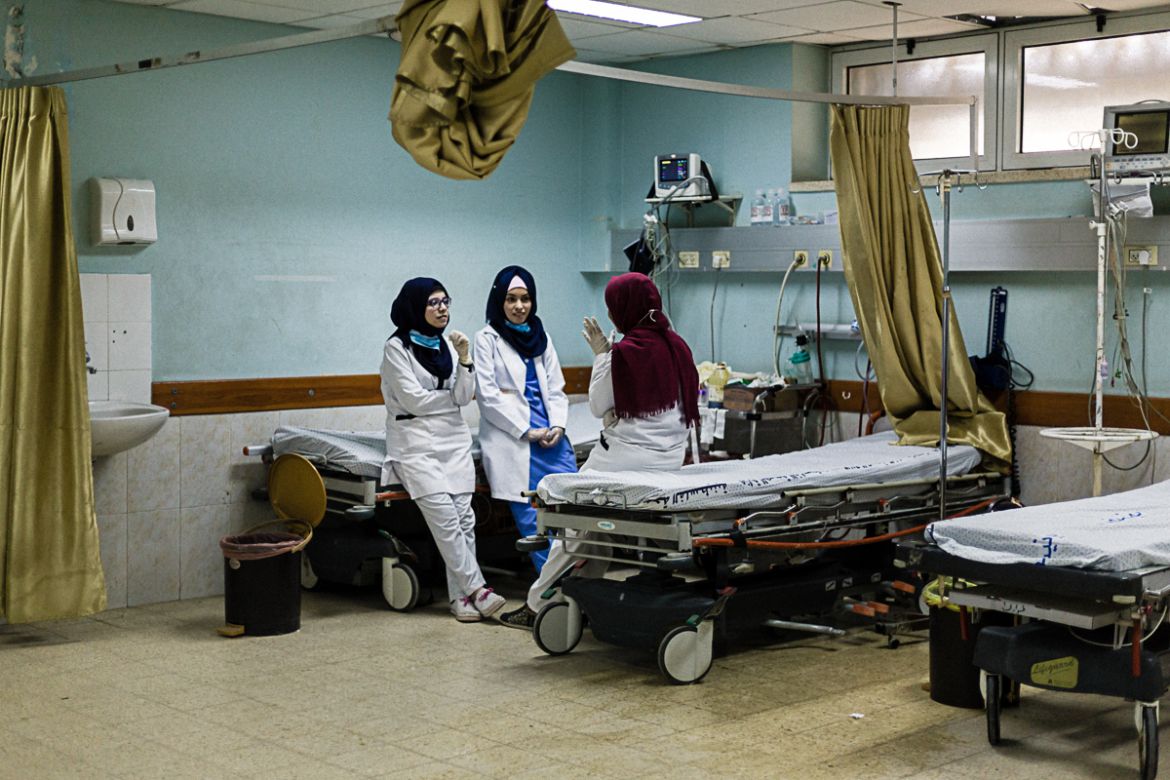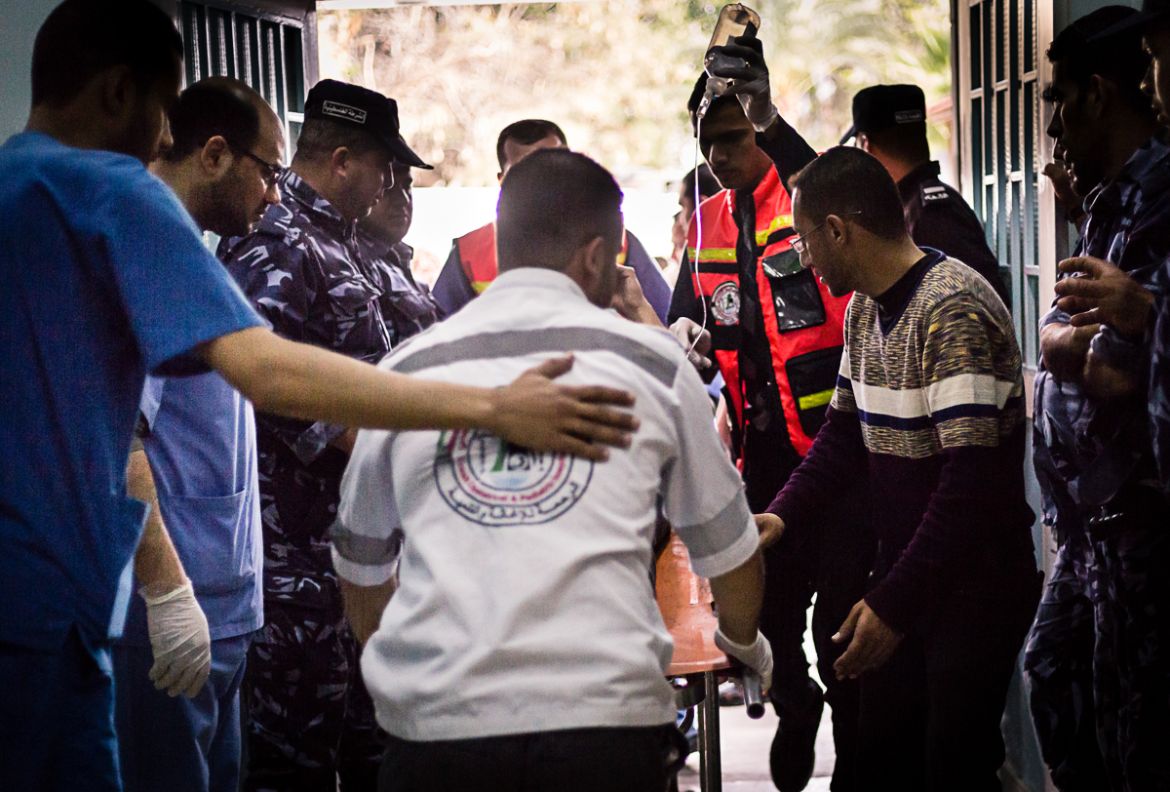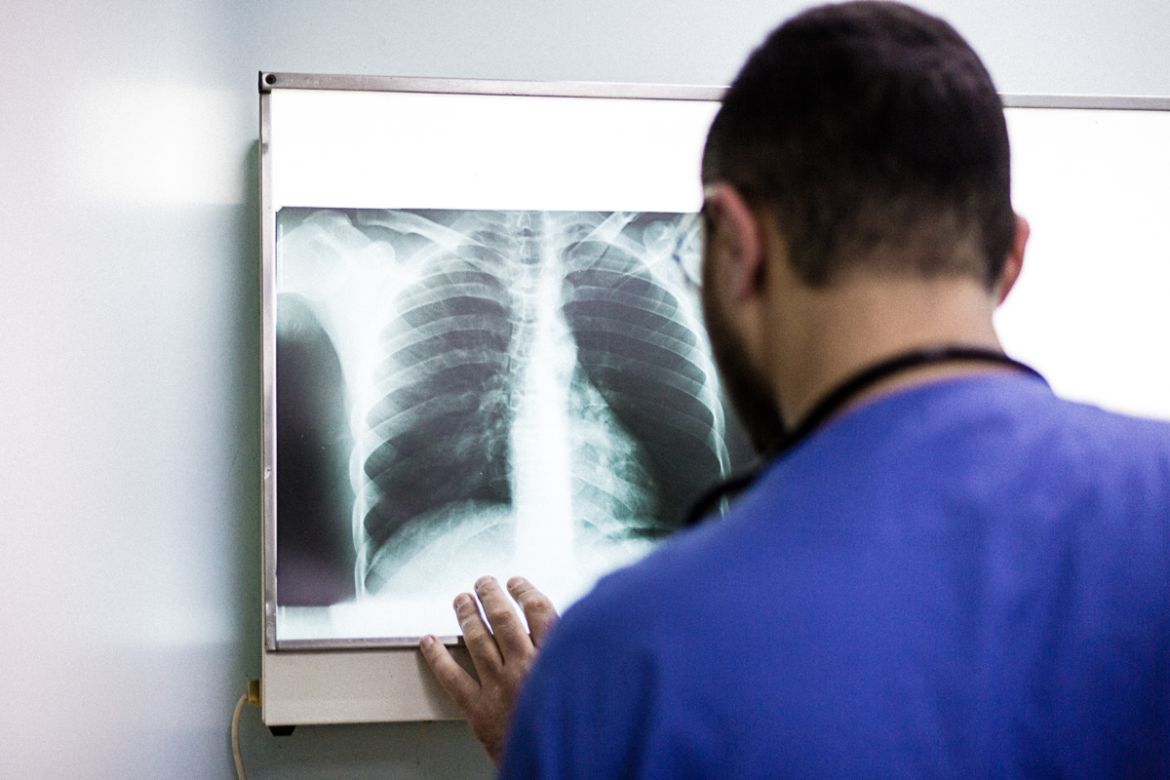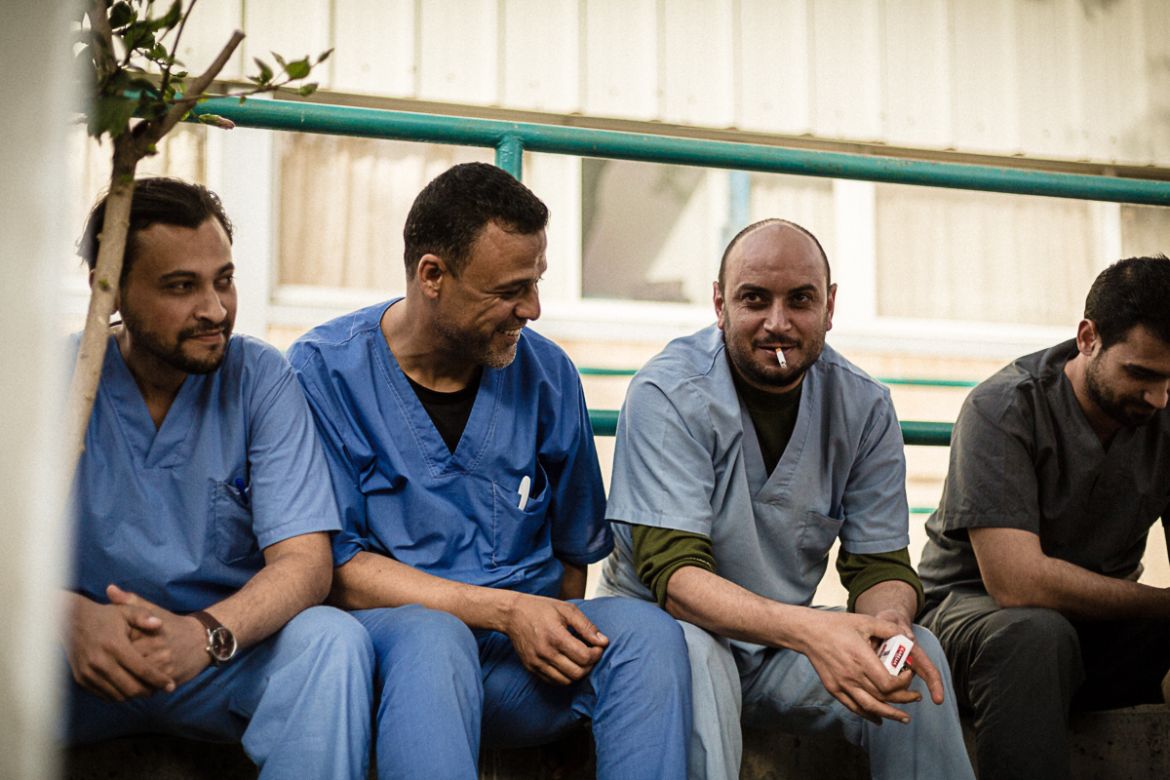In Pictures
Gaza hospitals handling influx of wounded, against all odds
With minimum resources and constant power cuts, hospitals in Gaza continue to deliver life saving surgeries and care.

Gaza Strip – In the middle of surgery, the operating theatre went pitch black for a few minutes. Only two tiny monitors showing the patient’s vital signs were visible. When the light came back on, powered by a generator, the medics continued their work.
Almost 2,000 people were wounded and required urgent medical attention as violence escalated in the border area of Gaza in the last several weeks.
Doctors and nurses said the current crisis had awakened the trauma of 2014 war in them, several expressing their frustration over not being able to do more for their patients.
Weakened by a shortage of drugs and medical supplies, severe restrictions on movement, a chronic energy crisis and a worsening economic situation, Gaza’s health sector is struggling to cope with the influx of wounded.
Hospital staff face dilemmas of prioritisation. “Every day I have to make a decision; to discharge a patient or keep them in. Many of them live in poverty, and I know that if I discharge them, they will not get the care they need at home,” says Dr Ahmad, a surgeon at Gaza Indonesian Hospital.
“If I keep them here, we may not have enough hospital beds,” Ahmad added.
Hospital personnel know what it means to struggle economically, as some cannot even afford the cost of transportation to come to work.
Still, every on Friday, the busiest day of the week, they are there; ready, calm and in control. They quickly assess each patient, comfort emotional relatives, and keep going, against all odds.

![Medical school graduates volunteer in hospitals. [Alyona Synenko/ICRC]](/wp-content/uploads/2018/04/f5eacb300d6449b2ab8ecb59102b1607_8.jpeg?fit=1170%2C777&quality=80)
![“This is the first time I work in a situation like this. At first, I was scared. Then you stop thinking about it. You just keep going.” [Alyona Synenko/ICRC]](/wp-content/uploads/2018/04/be2ce8603d2a4dec88c65d951dba25e6_8.jpeg?fit=1170%2C780&quality=80)
![There is a sense of urgency in the air, yet everybody knows what to do. Emergency plans have been prepared in advance. [Alyona Synenko/ICRC]](/wp-content/uploads/2018/04/f8fce4d9a7c04d228560f7037b8ba0d5_8.jpeg?fit=1170%2C780&quality=80)
![Doctors and nurses have been working long hours to respond to the crisis. While they are on duty, the fatigue does not show. [Alyona Synenko/ICRC]](/wp-content/uploads/2018/04/9c9038f3f9954ec7b223fd3e054d93d8_8.jpeg?fit=1170%2C780&quality=80)
![Patients wounded by live munition need a long treatment. When the body is healed, psychological trauma often remains. [Alyona Synenko/ICRC]](/wp-content/uploads/2018/04/f21c38059eea4f90bd84d996348629da_8.jpeg?fit=1170%2C780&quality=80)
![The International Committee of the Red Cross (ICRC) supports hospitals in Gaza with emergency medical supplies, mobility devices, technical expertise and trainings. [Alyona Synenko/ICRC]](/wp-content/uploads/2018/04/49277e2a8c7747f6bc77bf150d8504c8_8.jpeg?fit=1170%2C780&quality=80)
![Emergency room is being quickly prepared for the next patient. [Alyona Synenko/ICRC]](/wp-content/uploads/2018/04/9b8305923fe94488bf757011ec9568b9_8.jpeg?fit=1170%2C780&quality=80)
![Over the last weeks, doctors and nurses have been working under pressure to respond to the influx of wounded. Human resource are limited. [Alyona Synenko/ICRC]](/wp-content/uploads/2018/04/9a64bc928bac469e996744291ce29cb9_8.jpeg?fit=1170%2C788&quality=80)
![Managing the influx of wounded has been particularly difficult, as health services in Gaza are experiencing shortage of drugs and medical supplies. [Alyona Synenko/ICRC]](/wp-content/uploads/2018/04/39c2fdbc99fb4b23abff115fc8d4e8a1_8.jpeg?fit=1170%2C766&quality=80)
![One of the main challenges is to respond to the crisis and keep the regular health services running. All the non-life saving surgeries had to be cancelled. [Alyona Synenko/ICRC]](/wp-content/uploads/2018/04/e48d1b9b96af41f2a928629749e9802c_8.jpeg?fit=1170%2C808&quality=80)


![Ambulance is ready to answer the next call. [Alyona Synenko/ICRC]](/wp-content/uploads/2018/04/1017d80926e545a496547b065679e9bc_8.jpeg?fit=1170%2C780&quality=80)